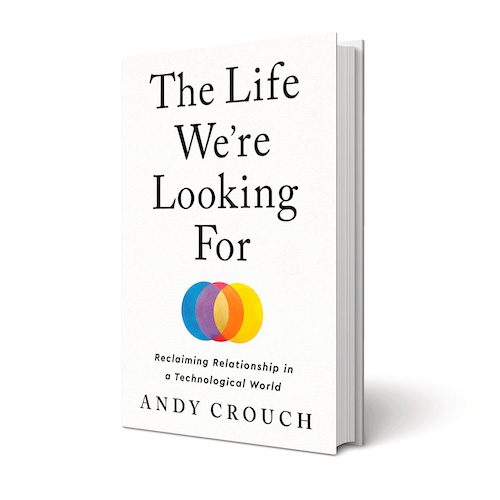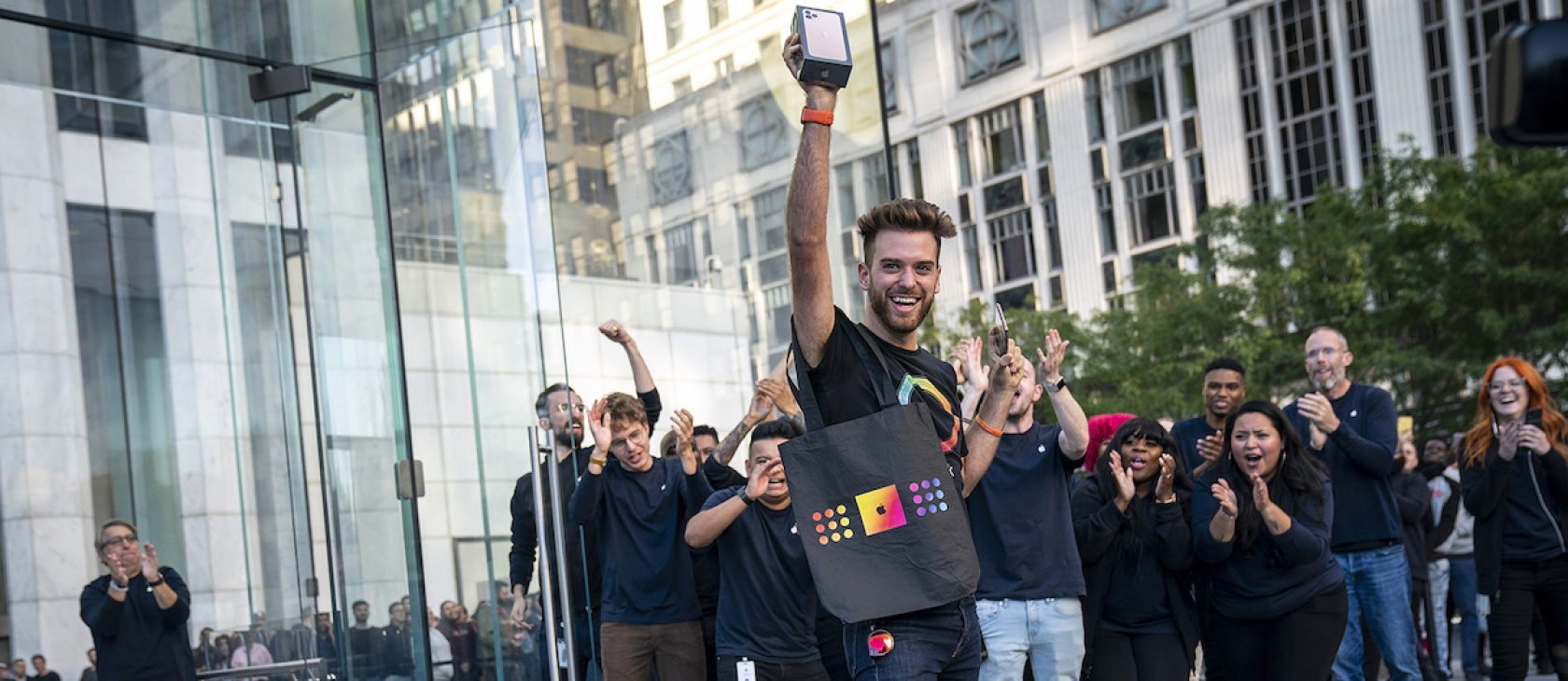By now it’s fairly well known just how much harm digital technology and the internet can do to individuals and communities. They’re addictive distractions that isolate people from one another, and they have become the powerful propaganda tools, supplying a constant stream of misleading narratives, periodic outrages, and blatantly false information—all while claiming the mantel of truth and objectivity. Already adults suffer from their excessive consumption of shallow social media, mindless entertainment, and abundant pornography, but today’s children stand to suffer even more, having never known a life without these devices.
So we’ve put down the phone, logged off Facebook and Twitter, stopped all the doomscrolling. Now what? How can we redeem that recaptured time?

By Andy Crouch
(Convergent Books, 2022)
Without question, it would be a tremendous good for all of us to break the bad habit of constantly pulling out our devices at every free moment, and there are plenty of books and resources to help with this very thing, like Glow Kids by Nicholas Kardaras and Digital Detox by Damon Zahariades. Anyone who’s interested can read all the studies on the effects of digital media and adopt helpful strategies to cope with withdrawal. Although a life completely free of smartphones and the internet might not be possible given how tech-dependent our jobs and education have become, a life that de-emphasizes technology is certainly possible.
This raises a question, however, not often considered: What should a person do with the freedom gained from ditching the screen? This is the very issue writer Andy Crouch addresses in his latest book The Life We’re Looking For: Reclaiming Relationship in a Technological World. The title’s not exactly provocative or memorable, but it’s an accurate summation of Crouch’s argument: If we’re not meant to mindlessly consume content and conduct our lives virtually, what exactly arewe meant to do?
Crouch begins his response by discussing the need for recognition. From the moment we’re born, we seek recognition from those around us. Crouch uses this idea to explain one of the main attractions of a smartphone that now “recognizes” the user. Not only does this recognition help the user access things on the phone more easily and customize content; it also satisfies the “very human need to be recognized and known.”
It’s not difficult to see how people in a screen-saturated world increasingly resort to their phone to experience this recognition—since everyone around them is too preoccupied with their own devices to look at or listen to them. Crouch explains how this issues in a kind of paradox in which our experience with technology is more personalized (all the content on our device is specially tailored to our tastes and interests), but our experience with actual people is less personal (we interact and share less with others and fail to appreciate their status as persons made in the image of the Triune God). This impersonal personalization has resulted in a crisis of loneliness across the developed world.
Thus, for Crouch, the question isn’t so much, “How do we get off our phones?” but rather “How can we start seeing one another as persons again?” To answer this, he brings up an image of the early Christians meeting at a house in Corinth in the first century AD. The owner of this house is a Roman citizen named Gaius whom Crouch identifies as a verifiable “person” in a culture that treated most people as nonpersons. However, instead of enjoying the privileges of citizenship like any other paterfamilias (the head of the household), Gaius instead joined a fledging Christian faith that “challenged almost all the assumptions of the Roman world, and the Jewish world as well, about the ideal human community, one in which every single member mattered as much as each part of our own bodies matters to us.” Considering that today’s culture is evidencing the same impersonal nature as that found in first-century Rome, in which individuals are only “seen” to the extent that they are useful or powerful, Gaius’ example could provide an important model to countering such dehumanization.
Recovering a culture of personhood necessarily involves defining what a person is. Dispensing with a potentially long philosophical exposition on this concept, Crouch takes his cue from the Bible, asserting that “every human person is a heart-soul-mind-strength complex designed for love.” This means our personhood is tied to how we feel, think, act, and live. Insofar as we exercise these faculties, we become more fully human (more fully persons); insofar as we fail to exercise these faculties, by isolating, we lose our humanity (personhood diminishes).
This is where our technology comes in. With every new device comes the promise of what Crouch calls a “superpower.” Whether it’s an airplane, a Roomba, or a smartphone, users can do things with these machines they couldn’t do otherwise; we can fly at high speeds, have a robot clean our floors, or access information at the touch of a button. In certain cases, we even experience a certain rush, or “superpower zone,” that comes from raised dopamine levels.
However, as Crouch points out, “Power without effort requires a trade, or a bargain, of sorts: You get superpowers, all right, but only part of you gets to come along for the ride.” While convenience and the “superpower zone” are technology’s great draws, these very qualities hold back an exertion of one’s heart-soul-mind-strength complex, what is also known as “flow.” According to Crouch, the flow state of being “fully present, fully engaged, acting decisively and creatively, with focus and energy” can’t come if one is already in the superpower zone.
Entering that “flow state” is not as inviting as the superpower zone, but it’s much better for personhood: “When flow subsides, as it inevitably does, we are left with a sense of gratitude, humility, and even awe…. We are open to other people, perhaps even to God and the cosmos, in a new way.” A life filled with flow is a much more human life, attuned to three-dimensional, lived reality and in a better condition to cultivate relationships. By contrast, too much time in the superpower zone effectively erases a person’s humanity.
Crouch transitions his argument away from technology itself to the idea behind technology, which he identifies as Mammon, which in modern terms is our “global system, the system that powers and is powered by the technological magic we all wield to some extent on a daily basis.” According to Crouch, Mammon is responsible for technology taking a predatory turn instead of an empowering one: “What [Mammon] wants, above all, is to separate power from relationship, abundance from dependence, and being from personhood.”
Consequently, technology on its current trajectory offers little hope for enhancing personhood. Rather, as Crouch explains, we will continue to produce generation after generation of “boring robots” that “will recede to a real but small role as one more device in a device-stuffed world.” As for human beings, we will continue to develop further into half-machine cyborgs “voluntarily embedding ourselves in digital systems to accomplish what we want to do in the world.” In other words, the worst of both the technological and human worlds prevail and finally override personhood completely.
There is hope, however, and it involves confronting Mammon. Crouch again references the community of Gaius and the early Christians that “would grow steadily, quietly, patiently, even as its outposts from time to time attracted imperial attention and violent repression.” Those wanting to reverse the dehumanizing influence of technology need to follow this example. In practical terms, this means (1) reconsidering all new technology in terms of its trade-offs rather than its benefits, (2) building up close-knit households that offer abundant opportunities for recognition and trust, and (3) honoring and recognizing the useless members of society upon whom “the flourishing of persons” depends.
It’s in these chapters that Crouch’s contribution starts to sputter. For all his thoughtful exploration, the solutions in the second half of his book prove somewhat predictable and underwhelming—at least when compared with the book’s much stronger first half. Whereas he’s able to offer a fresh look at the allure and consequences of technology use, his suggestions to use technology as a tool and spend more time with our families and give a second thought to those with disabilities seem more or less self-evident and occasionally smack of bland Christian moralizing.
Granted, this prescription is in line with the thrust of the book as a whole, which seeks to examine underlying causes and effects of technology. As such, Crouch is always considering the personhood aspect of technology, which necessarily involves a discussion of our perception and values more than a re-evaluation of our habits. Couch demonstrates that our continuous use of technology is less a negative aspect of modern living and more an all-encompassing lifestyle framing one’s entire perspective, which is why he is more concerned with recovering an authentically Christian way of life than presenting some helpful “life hacks” for tech addiction. And from a Western perspective, so much of what we mean by and value in personhood is readily available in the Christian faith and the examples of the earliest Christian communities.
However, those conditioned by a secular humanist worldview may find these references unpersuasive and even somewhat anachronistic. And even among Christians, many of whom are dropping out of churches, the solutions offered by Crouch may not take into consideration why they dropped out of those interpersonal relationships and faith communities in the first place.
Nevertheless, Crouch is successful in inspiring his reader to strive for a more meaningful kind of life. His language is approachable and his arguments are clear, all while touching on deeper ideas and provoking frequent reflection. In The Life We’re Looking For, we are given a gentle yet powerful reminder that we’re made for a greater purpose than idling our days on our devices. Rather, we are made for the high calling of loving God and one another in the fullest possible way.




